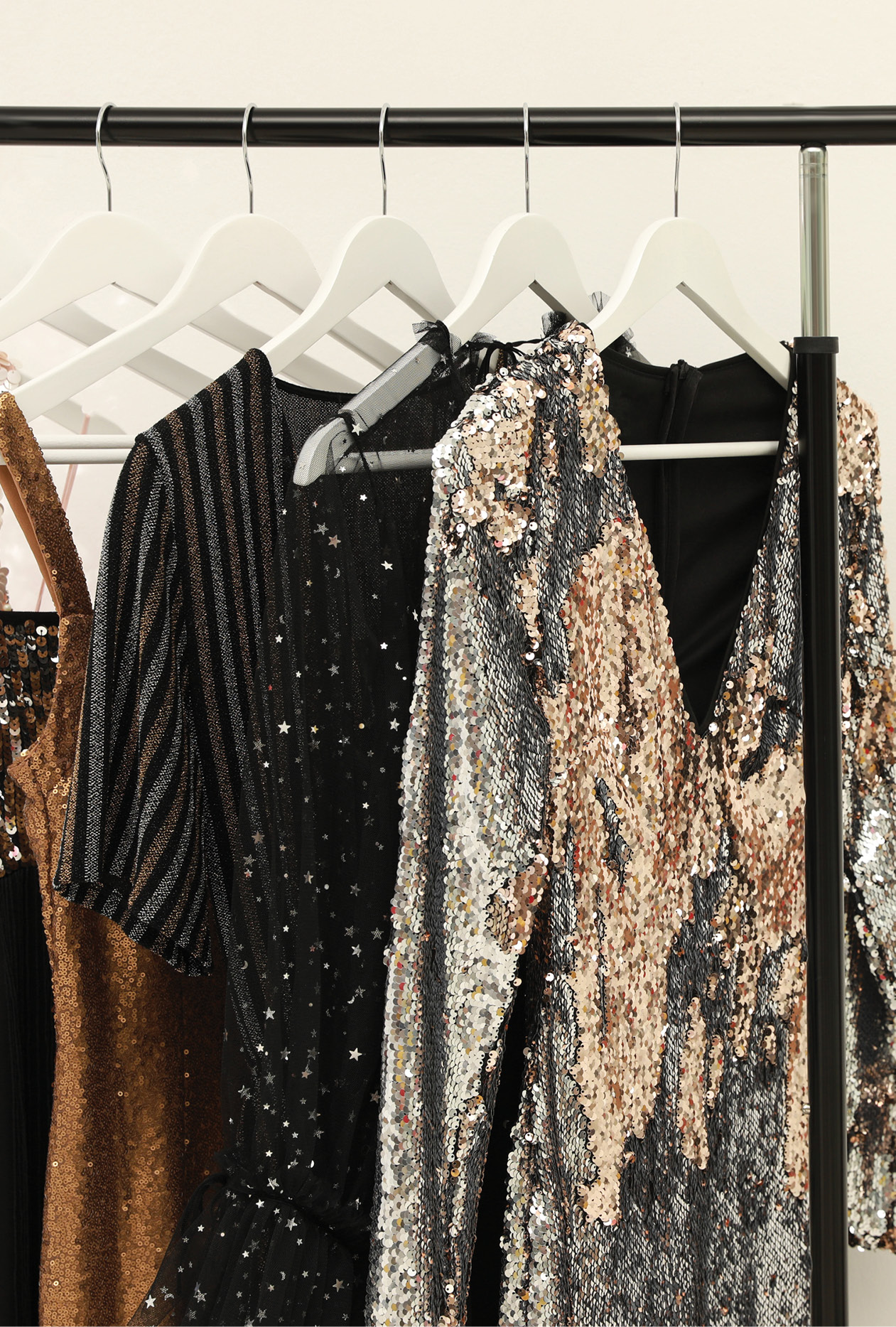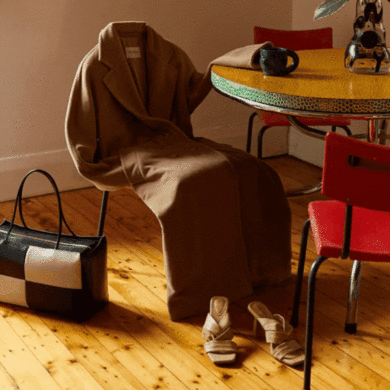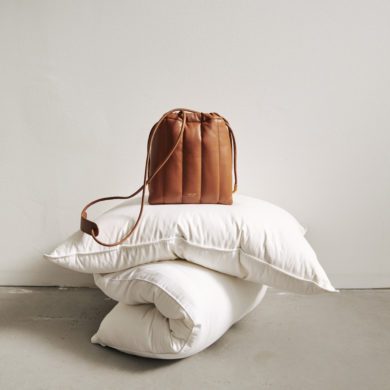You only have to catch a glimpse Georgia Howard*’s wardrobe to appreciate her love of fashion. In fact, the word “wardrobe” barely does justice to Howard’s vast collection of garments, which are spread, colour coded, across two rooms.
The 27-year-old Melbourne legal secretary owns more than 150 dresses from the likes of Zimmerman, Alice Mccall, Manning Cartell, Aje, By Johnny and many (many) more.
“You know the movie Confessions of a Shopaholic? Well, that’s me,” Georgia laughs. “I love beautiful clothes, and I don’t like to let things go, which can be a bit of a problem.”
But while a wardrobe – and shopping habit – of this magnitude would usually be a drain on anyone’s finances, Georgia has found a way to generate an income from it.
In 2019, she came across an article about a woman renting out her high-end wardrobe, and figured she would give it a go, signing onto the peer-to-peer renting platform The Volte.
Not only could it recoup some of the thousands she’d spent over the years, but her dresses –usually only worn once or twice – could be appreciated by others while still staying in her possession
She hasn’t looked back.
“On a good month, I can make as much as $2000 renting out dresses. Other times, it can be as low as $50 or $60,” she says, adding: “The money I’ve earned from there has helped pay for our wedding!”
Unsurprisingly, the busiest and most lucrative months of the year are during party season – Christmas, New Year’s Eve and Spring Racing – when Georgia finds herself fielding enquiries every couple of days.
Less expected is that it’s not the best-known brands or most expensive dresses that are the most popular or make the most money. A sequinned purple mini dress by little-known-in-Australia brand Retrofete, which Georgia bought for $400 on Facebook Marketplace, is her most successful rental – so far netting her a cool $6000.
“It’s definitely the type of dress you wear once,” says Georgia, reasoning that women often prefer to rent dresses they won’t wear more than once or twice. “I’ve since tracked down two more which I’m also renting out,” she adds.
While the administration can be painful (listing the items, managing rental requests, wrapping and posting them, sending tracking receipts etc) Georgia says it’s worth it.

Georgia is riding the new wave of peer-to-peer rentals, which sees regular people (and sometimes brands) lend out their clothes to customers who are willing to rent them. Emulating the success of fashion marketplace Depop, platforms like The Volte allow users to set up shop and set their own prices, while offering a degree of security when issues arise.
The Volte, one of Australia’s biggest rental businesses, was launched in 2017 four friends, including Bernadette Olivier who was working in the US just as Rent The Runway began to take off. Inspired by its success, she decided to launch a similar concept here.
“We all have these designer assets sitting in our wardrobe that could be earning us income – why not apply the sharing economy model to fashion?” she says.
The end of lockdown has been a boon for dress rental businesses like The Volte, with women wanting to dress up and go out, while simultaneously constricted by the rising costs of living and less disposable income to splurge on occasion wear.
And then, of course, there’s growing awareness of the environmental cost of fast fashion.
“We’ve all become more aware of the sustainability issues in the fashion industry, and that the industry and consumers need to move to a model that encourages more durable fashion that is in circulation for longer and recycled,” Olivier says.
Belinda Birt, who runs the rental store Your Secret Closet, as a side hustle, signed up to The Volte at the beginning of 2017 after realising the platform could help boost her business.
The 40-year-old mother of two, who lives in Hampton, Victoria, works with 10 Australian labels such as Ginger & Smart, Leo Lin, Nicola Finetti etc, who sell her wholesale stock which she then rents out. Birt’s collection – which features 800 dresses – is available in-store and online and is cared for by four staff. Prices start at $90 and go up to $250 for some of her best performing labels, like Ginger & Smart.
Monthly, she makes about $3500.
Birt says each dress has a shelf-life of about 10 to 11 wears; after that, she either sells them on through a secondhand marketplace or via the store, or, if the dress is too degraded, she donates the fabric to local milliners.
“All of it gets reused – we never send our garments into landfill,” she says.
For renters, peer-to-peer platforms provide an opportunity to wear something you couldn’t afford to buy – or justify spending thousands on. Perth-based Nell Minchin chose to hire a $1200 red Ginger & Smart gown to wear to the Logies rather than buy it outright.
“I saw the Ginger & Smart dress in their catalogue and I loved it, but I just wouldn’t have spent the money to own it,” she says.
Renting instead of buying also meant she could spend more on hair, makeup and shoes – plus there’s that sustainability factor.
“It’s such a waste we all buy clothes for every occasion,” she says. “I don’t know if it’s social media, but I too feel I should wear something different every time, but I don’t want to keep purchasing.”
Thinking of renting your wardrobe? Take tips from the pros:
Read the fine print
Confirm whether the platform you’re partnering with offers protection for damaged or lost dresses, and then be sure to abide by the conditions set out. For example, Georgia says while The Volte is happy to cover the cost of damaged dresses, users must show proof of purchase, the retail price and log any damage (including photos) within 24 hours to get compensated.
Take extra care
Use either a garment bag or large plastic bag to send items so there is an extra layer of protection.
Don’t buy strategically
If you’re planning to buy a dress for an occasion and rent it out later, just get the one you want, not the garment you think will be more popular among renters. It’s hard to predict what is going to be popular, and unless you’re renting clothes as a business you want to love the dress as much as the person who will borrow it.
Want more stories like this? Sign up to PRIMER’s free weekly newsletter













No Comments